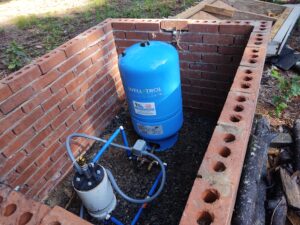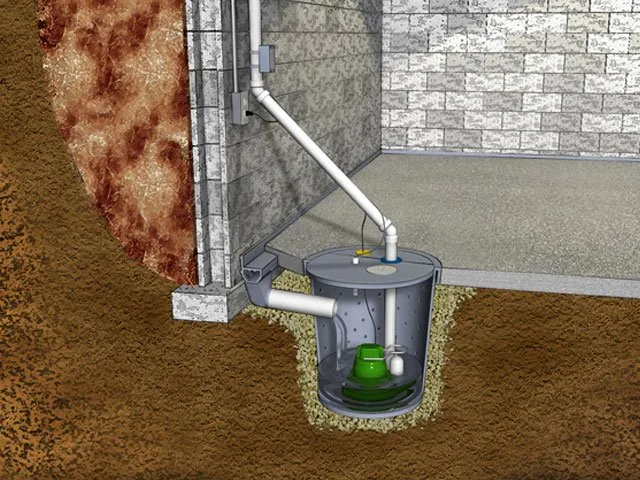Professional Pump Repairs & Installation Solutions: Enhancing Your Water supply's Effectiveness
Professional Pump Repairs & Installation Solutions: Enhancing Your Water supply's Effectiveness
Blog Article
Recognizing the Trick Components of Effective Water Purification Systems

Relevance of Water Purification Equipment
Water purification systems play a crucial function in guaranteeing access to safe and tidy alcohol consumption water by effectively eliminating impurities and impurities. These systems are necessary in attending to the expanding problems over water quality and the prospective health and wellness dangers associated with eating infected water. By making use of various filtration devices such as reverse osmosis, triggered carbon, and UV sanitation, water filtration systems can successfully remove harmful materials like germs, viruses, hefty metals, and chemicals from the supply of water.
Furthermore, water purification systems assist to improve the taste and smell of water by eliminating chlorine, sediments, and other pollutants that can impact its top quality. Water Softeners. This improvement in water quality not only makes it a lot more palatable but also motivates people to consume alcohol a sufficient quantity of water daily, advertising better hydration and overall health and wellness
Sorts Of Purification Elements

Physical filters are made to physically strain out pollutants from the water. These filters can be constructed from materials like ceramic, carbon, or even sand, and they work by trapping fragments bigger than the filter's pores as water travels through.
Chemical filters make use of various chemical processes to eliminate pollutants from the water. Examples consist of triggered carbon filters, which adsorb contaminations, and reverse osmosis membrane layers, which make use of pressure to separate impurities from the water.
Biological filters make use of living organisms like algae or germs to break down natural matter and contaminants in the water. These filters are typically made use of in wastewater treatment plants or natural water purification systems.
Recognizing the different sorts of filtering elements is critical for choosing the most appropriate water filtration system for specific purification needs.
Feature of Sediment Filters
Sediment filters play a vital function in water purification systems by properly catching solid fragments suspended in the water. These filters are generally the first line of protection in a filtering system, getting rid of larger particles such as sand, silt, dirt, and rust prior to the water relocates through finer filtering phases. By capturing these sediments, the filters prevent them from reaching downstream components, therefore expanding the life-span and effectiveness of the entire system.
The feature of debris filters is important in maintaining water top quality and securing sensitive tools from damage triggered by particles. Additionally, by getting rid of noticeable particles, debris filters enhance the quality and taste of the water. Frequently replacing or cleansing sediment filters is vital to make certain ideal performance. Ignoring this maintenance can bring about clogging, lowered water flow, and endangered filtration performance. Overall, debris filters are important parts that contribute dramatically to the content efficiency of water purification systems.
Function of Turned On Carbon Filters
Playing a vital duty in water purification systems, turned on carbon filters are crucial in getting rid of contaminations and impurities from the water supply. As water passes with the filter, the triggered carbon holds and draws in onto the impurities, ensuring that the water that comes out on the other side is cleaner and more secure for intake.
Turned on carbon filters are extremely effective at improving the preference and smell of water by minimizing chemicals that can impact its quality. They are additionally with the ability of eliminating certain heavy steels like lead and mercury. Furthermore, these filters can help prevent the buildup of microorganisms and algae in water, additional enhancing its overall top quality. Because of their flexibility and integrity, turned on carbon filters are an essential component in making certain that water is cleansed to the greatest standards prior to reaching customers.
Recognizing Reverse Osmosis Solutions
Reverse osmosis systems are advanced water purification systems that utilize an innovative process to eliminate impurities and impurities from alcohol consumption water. These systems function by applying pressure to the water, compeling it through a semi-permeable membrane.
In addition, reverse osmosis systems are relatively low-maintenance and can be installed under the sink or in a main purification system, giving convenient accessibility to tidy water throughout the house. Overall, understanding just how reverse osmosis systems function can aid visit their website people make educated choices concerning their water purification demands.
Verdict
In final thought, effective water filtration systems are vital for ensuring risk-free and clean drinking water. By understanding the function and duty of each element, people can make educated choices when picking a water purification system.
Water purification systems play an essential function in making sure accessibility to secure and clean alcohol consumption water by efficiently getting rid of pollutants and contaminations. By using numerous filtration systems such as reverse osmosis, turned on carbon, and UV sanitation, water filtration systems can effectively remove harmful compounds like microorganisms, infections, heavy metals, and chemicals from the water supply.
Sediment filters play a critical function in water purification systems by effectively catching strong fragments put on hold in the water (Water Treatment).Playing a crucial role in water filtering systems, triggered carbon filters click now are crucial in getting rid of contaminations and contaminants from the water supply.Reverse osmosis systems are advanced water filtration systems that employ an innovative process to remove contaminants and impurities from drinking water
Report this page